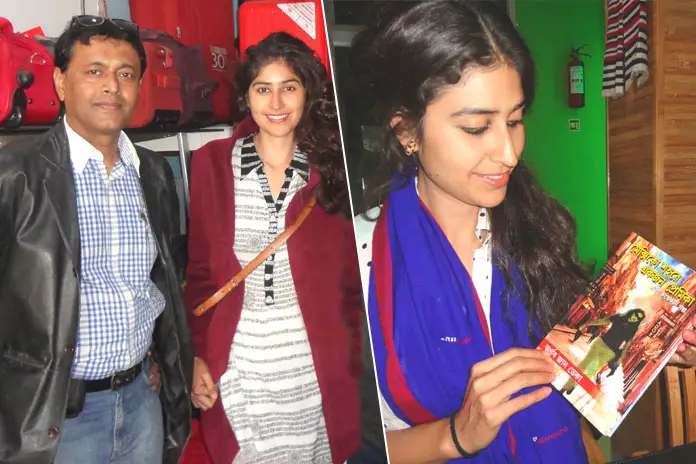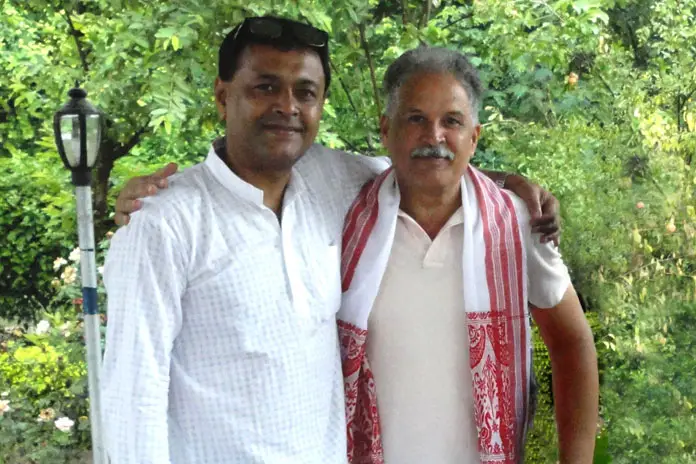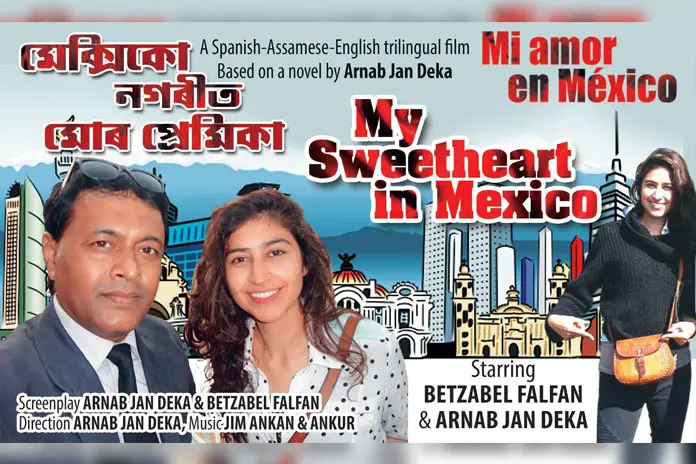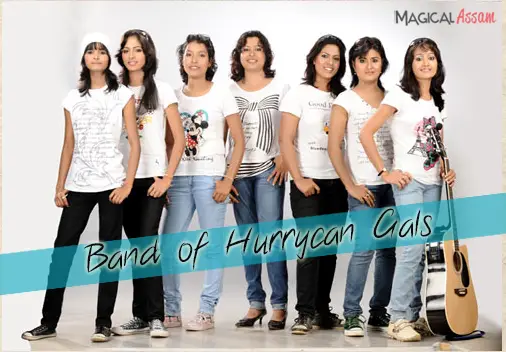A prolific novelist, short story writer, poet, playwright, screenplay writer, documentary filmmaker, columnist, TV actor, river engineer, eco-technocrat all rolled into one, Arnab Jan Deka’s wide-ranging literary interests led him to start writing fiction just at the end of the twentieth century, and two leading Assamese literary journals – Prantik and Goriyoshi, firmly established his reputation as a serious story-writer in Assam. “My first Assamese short story collection in addition to my first novel got published in 1999, and both saw unprecedented success and were runaway hits among readers,” the celebrated author recalls.
And within the next two decades, his short stories and novels received wider readership both within Assam and outside. “In fact, I received far greater appreciation among the non-Assamese readers outside the state and even India through translation of my writings,” he says. Blessed with an analytical mind and a fertile imagination, Arnab Jan Deka’s first official recognition for his fiction work came in 2003 when one of his short stories – Himalayan Mystic Meeting, won an award at the Katha International Short Story Festival in New Delhi, where it was cited for its “skilful depiction of the essence of Indian heritage and how it blended with the universal philosophy of life”.
His biographical novel on his father, renowned educationist, author, scholar and a pioneer economist of Assam, Principal Bhabananda Deka – Bhaba Ananda Sambad, won him the prestigious Assam Government Publication Board Golden Jubilee Novel Award in 2006.

Subsequently, in the year 2009, the first collection of his translated short stories in Bengali – Mexico Shohore Ekjon Premika Ebong Koyekta Golpa, was published by a publisher from Kolkata’s College Street – a hallowed hub of Kolkata’s literary crowd. “That book received unprecedented popularity among the Bengali speaking public both in West Bengal as well as Bangladesh and opened up new vistas for my literary expedition,” he said. During the next few years, his short story collections got translated into several other languages and published in different corners of the globe, bringing rare recognition to the author.
Deka was also approached by the popular Assamese film actor-director Brojen Borah to adapt one of his popular novels – Soisobote Dhemalite, based on children’s rights to freedom and education, into a television serial in 2010. This serial was the swan song production of eminent producer-actor late Pramod Baruah.
Meanwhile, academics and universities outside Assam started paying special attention to Deka’s short stories as they were regularly published in different leading publications in other languages in translated forms.
A leading university of South India – Manonmaniam Sundaranar University, incorporated three of his widely read short stories – Himalayan Mystic Meeting, Three Village Girls and Mother America, into the syllabus of their Masters Degree Program in English language, a rare achievement that Deka himself was, interestingly, unaware of in the beginning. “I only came to know about this rare honour when university and college teachers under that university contacted me online enquiring about publication of my storybook in English containing those three particular stories as they desperately needed my books to teach in classes and prepare research papers on my short stories,” he recollects.
These series of interesting events ultimately led to two significant cinematic collaborations outside of Assam involving his stories and novels. There is something enormously satisfying about seeing such efforts getting a favourable response. “About three years back, I met a Mexican actor Betzabel Falfan who read my popular short story – Mexico Sohorot Ejoni Premika, which was published in Assamese in Prantik in 2002, and was later translated into English, Spanish and other languages and was even published from Mexico,” he says.
After a thorough discussion with the actor, they arrived at an understanding to enlarge the ambit of the storyline into a complete novel and adapt it into a full-length feature film. The story depicts the common anthropological and geographical threads that binds together two extremely opposite cultures from two different corners of the globe into a cohesive force blended in humanism and romance.
Betzabel also proposed that a Spanish version of the film should be made, apart from English and Assamese, so that her fellow countrymen could enjoy the first cinematic collaboration between India and Mexico. “She told me that the Mexicans always look up to India for its rich cultural ethos and traditions, since their own ancient Maya and Aztec civilizations were destroyed by the Spanish invaders and the present generation of Mexicans have no link with their own past,” he says.
It is interesting to note that Betzabel herself learned Sattriya dance and opened a Sattriya dance school back in her hometown Leon. “Due to her enthusiasm and support, we decided to make the film a trilingual one, titled in Assamese as Mexico Nogorat Mor Premika, in English as My Sweetheart in Mexico and in Spanish as Mi Amor en Mexico,” Deka says.
Betzabel Falfan also actively collaborated with Arnab Jan Deka in developing the storyline and screenplay for the film, which is being directed by Deka himself. Music for the film will be scored by the talented duo Ankur-Ankan, both of whom have considerable exposure in multinational collaborative music. While Ankur has been more into classical genre and brought out several albums in different languages, Ankan specialises in lighter fusion music and has won several major international awards for his iconic song Awaaz, which was created as a tribute to the Delhi gang-rape victim. Both were lucky to have received tutelage from none other than the legendary artist Dr Bhupen Hazarika.

“We decided to incorporate an international cast of artistes from different countries, apart from Mexico and Assam, and accordingly proceeded in a clearly chalked out plan,” says Deka.
Accordingly, the film’s first phase of shooting has been wrapped up recently. During this schedule, the unit, lead by Deka, extensively shot in and around Brahmaputra, both over the river and on the north bank. A number of major scenes, involving artistes from Italy and Britain, have been shot. Almost 40 per cent of the scheduled shooting has been completed and the unit plans to shoot the next schedule in the southern states of the USA and Mexico.
Meanwhile, two film and television production houses based in Mumbai and Haryana approached Arnab Jan Deka for the Hindi film and television rights of four of his novels and five short stories. Popular Bollywood actress Priyanka Chopra’s uncle and Parineeti Chopra’s father, Pawan Chopra, is one of the partners of the production companies. “They invited me to their ancestral home at Ambala Cantonment in Haryana and graciously offered their warm hospitality, during which we finalised our deal for the Hindi adaptation of my novels – Natun Kurukshetra, Prem Asambhav, Xhoixobote Dhemalite and Xuxamoy Duxamoy as well as short stories Chitraxalar Xapon, Khalnayikar Hahi, Himalayan Mystic Meeting, Restless with Tess and Return of the Nightmare,” Deka recalls.
As the first venture signaling his foray into Hindi filmdom, the production house submitted a proposal for adapting his novel Natun Kurukshetra into a Hindi television serial Naya Kurukshetra, which was approved by New Delhi-based Prasar Bharti to be telecast by the newly-launched satellite channel Arunprabha. Arnab Jan Deka co-wrote the screenplay and Hindi dialogue for the serial, which is being directed by leading Punjabi actor-director Parmod Pabbi. A number artistes from Mumbai, Punjab, Haryana, Kolkata and Assam have been cast in important roles in the serial. In the first phase, 26 episodes of the serial will be shot, which is expected to be telecast at the beginning of next year.




